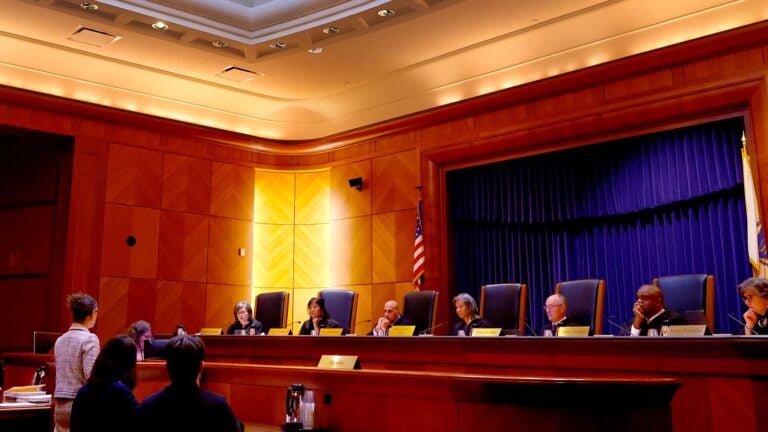
"Back in May, public defenders in Massachusetts initiated a work stoppage in hopes of getting the Legislature to increase their hourly pay. Defendants were released from jail because they lacked representation, and charges were dropped against some defendants in special hearings. Many involved described the situation as a "crisis." In August, state lawmakers approved a modest pay raise for these private, court-appointed attorneys in the hopes that it would incentivize many of them to begin taking cases again and ease the work stoppage."
"On one side, defense attorney groups are hoping the Supreme Judicial Court will exert power over the Legislature to raise pay rates to a level that would be more acceptable to the public defenders. On the other side, the state trial court system itself and the Suffolk County District Attorney's Office are arguing that such an action would violate the separation of powers. The seven justices on the SJC heard oral arguments Wednesday and took the case under advisement."
"The public defenders, known as bar advocates, are private contractors that usually handle about 80% of the cases concerning poor criminal defendants in Massachusetts. Staff from the state Committee for Public Counsel Services cover the rest. The state has an unusually high reliance on bar advocates, the has reported, meaning that they have significant leverage. At the same time, they made less per hour than colleagues in other nearby states."
Public defenders in Massachusetts began a work stoppage in May seeking higher hourly pay, leading to defendant releases and dropped charges when representation was absent. Lawmakers approved a modest pay raise in August, which reduced but did not eliminate the number of unrepresented defendants; more than 900 remain without counsel. Defense groups ask the Supreme Judicial Court to push the Legislature for higher rates, while the state trial court system and Suffolk County DA argue such intervention would breach separation of powers. The SJC heard arguments and took the case under advisement. Bar advocates handle roughly 80% of indigent cases and earn less than counterparts in nearby states, giving them leverage and leaving CPCS overwhelmed when advocates stopped representing cases in Suffolk and Middlesex counties.
Read at Boston.com
Unable to calculate read time
Collection
[
|
...
]